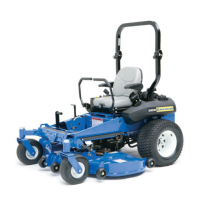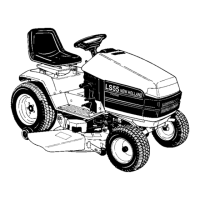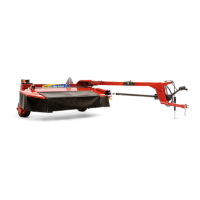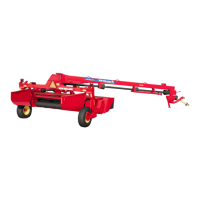SECTION 3 -- FIELD OPERATIONS
3--39
TYRES
USE, MAINTENANCE AND REPLACEMENT
• When changing tyres, select suitable tyres for
the actual tractor use, taking account of the
recommended combinations on pages 3--43 and
3--44.
• Do not exceed the permitted load shown on the
tyres themselves.
• Do not exceed the speeds shown on the tyres, as
in addition to overheating, this causes premature
wear of the tyres.
• Do not fit used tyres where their previous use is
unknown.
Ask your authorised dealer or a tyre specialist for
advice.
• After fitting tyres, check that the wheel nuts for
tightness after 100 km (60 miles) or 3 hours in
operation.
Thereafter, check that they are tight on a regular
basis.
• Do not stand tyres on hydrocarbons (oil, diesel,
grease, etc.).
• The tyres fitted on your tractor must be checked
periodically, paying particular attention to:
-- the tread, which should wear uniformly;
-- the walls, which must not have cracks,
bulges or abrasions.
• Have the tyres checked by a specialist if one or
more of the problems previously explained
should occur.
• Consult an expert if a tyre is subject to violent
shocks even if there are no visible signs of
damage.
• Tyres age even if little used or not used at all.
Cracks on the walls, sometimes accompanied by
bulges, are a sign of ageing.
• Tyres fitted on tractors which are not used for
extended periods tend to age more rapidly than
those used more often. In this event, it is
advisable to raise the tractor from the ground and
protect the tyres from direct sunlight.
WARNING
T yres must be changed by skilled personnel who
have the right equipment and technical knowledge.
If tyres are replaced by unskilled personnel, serious
physical injuries can result, serious damage to the
tyres can be caused and the actual wheel rim can be
distorted..
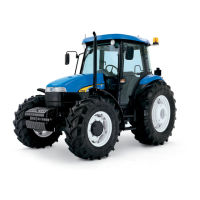
